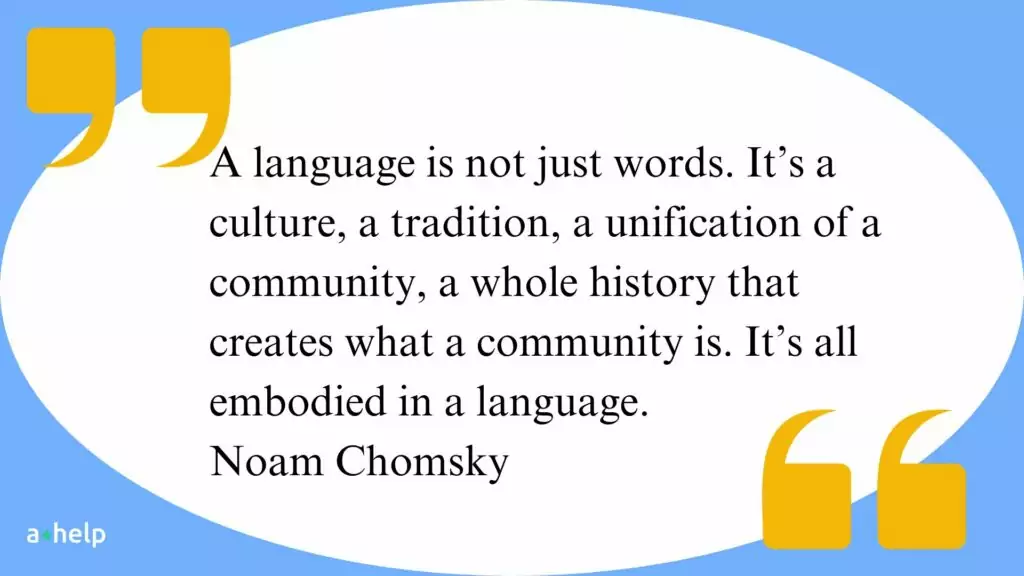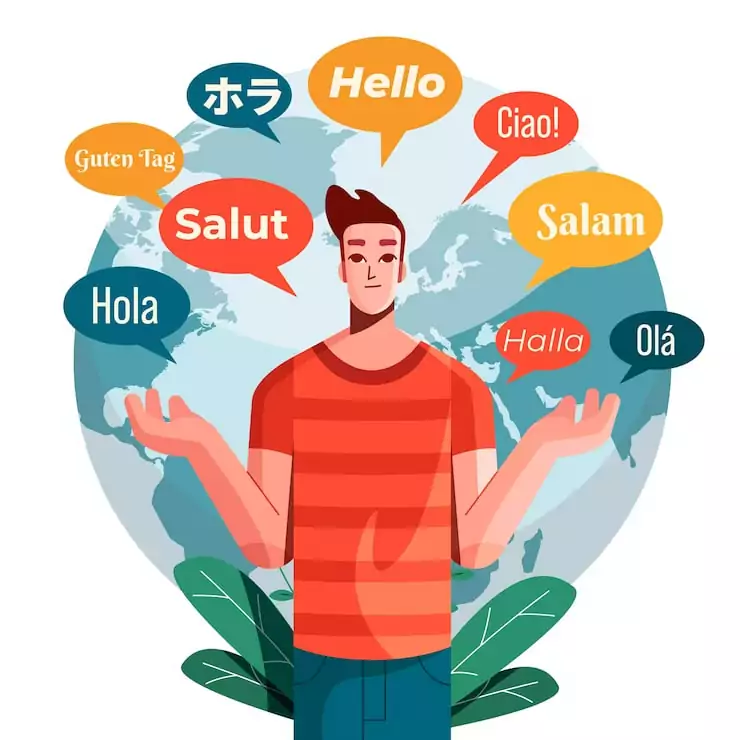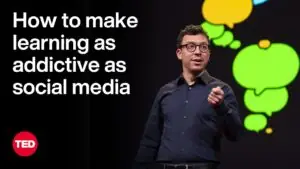You’re diving into the exciting journey of mastering a new language, and your goal is to blend in effortlessly with locals. The concept of fluency might be a bit vague, so let’s explore how you can attain it.

✅ AI Essay Writer ✅ AI Detector ✅ Plagchecker ✅ Paraphraser
✅ Summarizer ✅ Citation Generator
Key Takeaways:
- Learning any foreign language is a work in process, but you need to focus on personal goals when mastering the language.
- Normalize constant learning: foreign speakers will never know all the words just like native speakers.
- Be bold to start speaking the language from day one. It will give you a nudge to keep going.
Fluency refers to your ability to communicate effectively in a language, and it goes beyond just speaking. Although being a proficient speaker is often associated with fluency, you can also aim to become a fluent reader, listener, or writer. So how can you enhance your fluency? Well, the best approach involves immersing yourself in the language, whether it’s through conversation with native speakers, practicing reading and writing, or actively listening to authentic content. Embrace every opportunity to engage with the language, and soon you’ll find yourself speaking like a local.
On Reddit, many share a common struggle in language learning: feeling overwhelmed by the vast number of words and phrases yet to be learned. Even those fluent in foreign languages find themselves lost in a sea of unfamiliar terms and fast-paced conversations on platforms like TikTok, revealing the relentless nature of language mastery. Let’s find out if one can even really know a foreign language..
Reddit Users Prove That Language-Learning Is for Everybody
Language learning can sometimes feel like a daunting journey. Many learners express concerns about the seemingly endless road ahead before they can comfortably express themselves and understand everyday matters in a foreign language. However, Reddit users have shared practical insights that reveal how language learning is an ongoing process that never truly ends.
One user noted that even in their native language, they encounter words specific to certain fields or regions that they might not know. For instance, words like “vanity,” “blower,” “leaf blower,” and “lawn mower” may not be part of their everyday vocabulary unless they grew up in a particular country. This insight underscores the idea that learning never truly stops, and the ability to understand words often depends on context. Over time, learners can develop the skill to deduce the meaning of unfamiliar expressions based on the situation or previous context, even if they haven’t heard the specific phrase before.
“Unless you live/grow up in a country you won’t really learn all those kinds of words. Learning truly never ends. Even in your NL, you won’t know every word there is as there are words that are only used in their respective fields. Not being able to understand what someone is saying is why understanding based on context is great. When you reach a pretty high level in the language, you start sort of getting a picture about what an expression you have never heard may mean solely based on what’s happening on screen or something they might have said before the expression. to get better at understanding people on instagram, watch the same people on instagram over and over, everything they post. Everyone usually has their own way of speaking so by watching a bunch of their content you will get used to how they say certain things. You could be considered “conversationally fluent” and still not understand so many things.”
Another Reddit user shared their experience with learning Japanese, highlighting that they have reached a level where they can engage in various activities, such as watching TV, reading books, and having conversations in Japanese. Despite their significant progress, they still feel that there is much more to learn, emphasizing the seemingly endless nature of language acquisition. They acknowledge that their journey is far from complete, but they have come a long way, which is an essential aspect of language learning—to recognize and celebrate the progress made.
“If I step back and look objectively, I’m further along with Japanese than I’ve ever dreamed I would be. I watch TV and YouTube in Japanese. I read 2 books a week in Japanese right now. I have an entire friendship that is like 75% in Japanese. I write Social Media comments in Japanese and rarely does anyone suspect I’m still learning. You can stick me in just about any possible situation and even if I don’t et everything, there is no scenario in which I can’t at least follow the topic. I’m not saying that to show off or anything. I’m saying that in a sense of that I can do all these things I never dreamed of just a couple years ago, and I still to this day think “I have so much left to do, I will never learn this language”. The further I get, the more and more that there is in front of me that I haven’t even started yet. It absolutely feels endless.”
Furthermore, another user discussed their experience with language learning, explaining that as they delved deeper into a language, they realized the vast amount of knowledge and subtleties they had yet to explore. They mentioned encountering poetic grammar rules and complex words that extended beyond their current proficiency level. Despite the challenges, they encouraged fellow learners to be proud of their progress, as it could lead to unexpected and positive experiences, like being mistaken as a native speaker or receiving resident pricing at museums in the country where the language is spoken.
“Even at B2 you still feel this. I was listening to a Turkish song with a friend in the car called “Ne Teselli Ne Avuntu”. My friend asked what that means, genuinely have no clue. Went home and looked it up, it means essentially “No Consolation No Solace”. But the directly translation is like “What consolation, what solace”. First of all, at B2 I have yet to even touch words like Consolation or Solace. Secondly, cultural grammar rules like “Ne ______, Ne _________” are poetic grammar rules I have barely been exposed to. There’s a whole world out there that I haven’t even touched yet and of course I can use this language for any conversation and watch most media, but stuff like this is just so far out from where I am now it’s insane.”

In conclusion, the comments on Reddit demonstrate that language learning is a continuous and enriching journey, open to everyone. They highlight the importance of celebrating one’s progress, understanding that the process is ongoing, and embracing the opportunity to explore the endless facets of language. Whether it’s acquiring new vocabulary, grasping the intricacies of grammar, or achieving conversational fluency, language learning is a journey that offers practical benefits and a sense of fulfillment to all who embark on it.
How to become fluent
Set goals, immerse yourself, consume content, and speak from day one – these are the keys to becoming fluent in a new language. As college students, you may feel overwhelmed by the thought of achieving fluency, but rest assured, with the right approach, anyone can accomplish it. Let’s dive into these steps to help you pave your way to language mastery.
Goals
Firstly, goal setting is crucial. Learning a language blindly can be disorienting and lead to frustration. By setting specific, measurable, achievable, relevant, and time-bound (SMART) goals, you increase your chances of success. For instance, you might aim to achieve a B1 level in French within a year. With this framework, you create a structured path towards your language learning journey and set yourself up for achievement.
Be in the language

Next, immerse yourself in the language as much as possible. While language immersion programs are highly effective, not everyone has the opportunity to participate in them. Nevertheless, there are alternative ways to create your immersion experience. Make the most of the internet and globalization by listening to, reading, and watching content in your target language. Additionally, seek opportunities to visit countries or engage with immigrant communities in your own country. These experiences will greatly enhance your language skills and cultural understanding.
In addition to immersion, consuming content plays a vital role in language acquisition. According to the input hypothesis, the more exposure you have to input, such as reading and listening, the better your language skills become. To improve your vocabulary, dedicate time to reading extensively and watching movies or series on platforms like Netflix. Moreover, research suggests that focused listening, in which you repeatedly listen to native speakers discussing familiar topics, can significantly improve your pronunciation and fluency. Surprisingly, reading extensively also indirectly enhances your speaking and communication skills, even in the absence of regular speaking practice.
Do not be afraid to speak
Speaking from day one is a fundamental step in becoming fluent. Although speaking can be challenging outside of an immersion environment, there are strategies you can employ. Look for language buddies, preferably native speakers, with whom you can engage in language exchange. If that’s not possible, find fellow language learners who share your passion. Meeting for a coffee or a meal can provide opportunities for conversation and practice.
In addition to finding conversation partners, consider talking to yourself. While it may seem unusual, speaking to yourself, or private speech, is akin to thinking in your new language. It aids in internalizing the language and improving your fluency. Although it may not be as enjoyable as conversing with others, this practice can be beneficial.
By setting goals, immersing yourself, consuming content, and speaking from day one, you’ll embark on a remarkable journey towards fluency in your chosen language. Remember, language learning is a gradual process, and it requires consistent effort, patience, and an open mind. Embrace the challenges and celebrate the progress you make along the way. Your dedication will undoubtedly pay off, and soon enough, you’ll find yourself speaking your new language with confidence and fluency.
Follow us on Reddit for more insights and updates.





Comments (0)
Welcome to A*Help comments!
We’re all about debate and discussion at A*Help.
We value the diverse opinions of users, so you may find points of view that you don’t agree with. And that’s cool. However, there are certain things we’re not OK with: attempts to manipulate our data in any way, for example, or the posting of discriminative, offensive, hateful, or disparaging material.